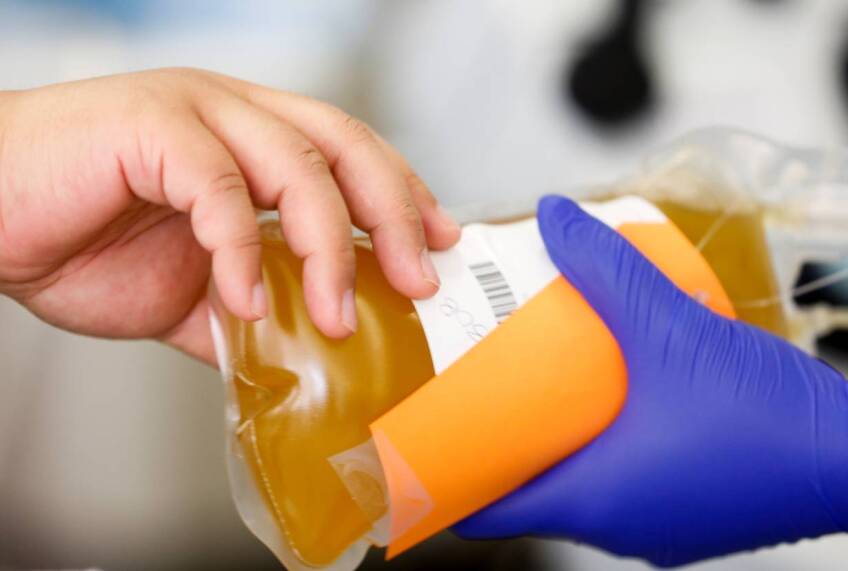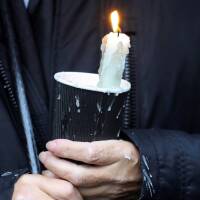Gay Men Face Limits on Donating Plasma for English Coronavirus Trial
This story was originally published May 1, 2020 by the Thomson Reuters Foundation.
Men who have had sex with another man in the past three months have been barred from taking part in an English coronavirus treatment trial, a policy LGBT+ rights advocates say is discriminatory and unscientific.
The English National Health Service (NHS) is conducting trials to see whether plasma from people who have recovered from COVID-19 could be used to treat sufferers, and applying existing restrictions on gay and bisexual men donating blood.
More on the impact of COVID-19 around the world
Rules governing blood donations by men differ globally, with many countries imposing blanket bans to reduce the risk of transmitting HIV, the virus that causes AIDS. However, some countries including Italy have no waiting period at all.
"The government, we believe, is missing out on a huge pool of potential safe donors," Ethan Spibey, of advocacy group Freedom To Donate, told the Thomson Reuters Foundation. "This is not really just about gay and bisexual men, this is about how you secure a sufficient and safe blood supply for everyone."
A spokesman for the NHS said a committee of officials, academics and LGBT+ advocates would submit recommendations to the government by the end of 2020 on whether to change the three-month deferral period to an individualized approach.
"We appreciate that any deferral is disappointing if you want to save lives by giving blood, platelets or plasma," he said in an email. "We recognize that people want to be considered as individuals as much as possible."

Northern Ireland followed countries including Denmark and the United States last week in cutting the celibacy period for gay and bi men to donate blood from 12 to three months, as many states face shortages of blood due to the coronavirus pandemic.
"The rate of new HIV diagnoses are dropping, the numbers of people with undiagnosed HIV are dropping. We have better testing technologies," said Michael Brady, medical director of the Terrence Higgins Trust, a HIV/AIDS advocacy group.
"There are examples of other countries that have successfully and safely brought in a risk-based approach, which moves away from the blanket deferral rules ... I think the plasma trial is another opportunity to raise the issue," Brady said.
Reporting by Rachel Savage @rachelmsavage; Editing by Claire Cozens.





